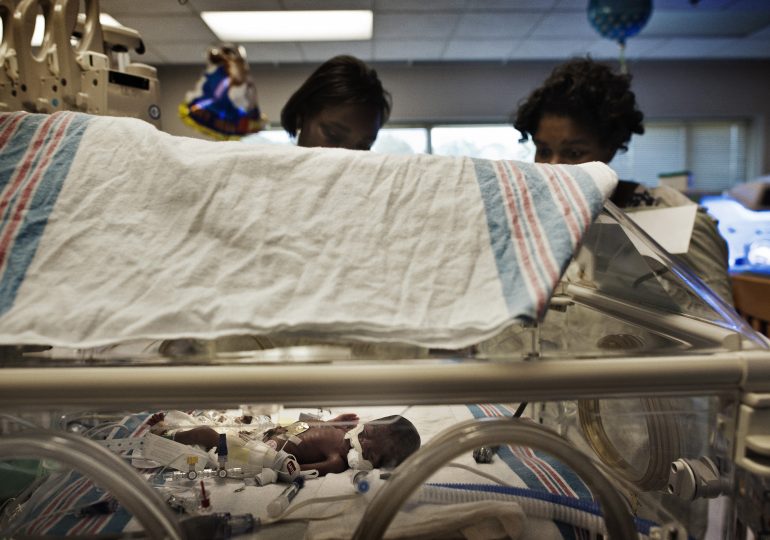Health officials in Mississippi have declared a public emergency over the state’s rising infant mortality rate, which is the highest it’s been in a decade. Data from 2024 show that for every 1,000 infant births in the state, there were 9.7 deaths within the first year of life—up from 8.9 in 2023.
[time-brightcove not-tgx=”true”]
“Every single infant loss represents a family devastated, a community impacted and a future cut short,” said state health officer Dr. Dan Edney in a statement declaring the public health emergency, which allows the state to mobilize resources more quickly than it otherwise would have.
According to state data, 3,527 babies have died in Mississippi before age 1 since 2014. The state saw a particularly high increase in neonatal deaths, which occur during the first month of life, and a very high overall infant mortality rate for Black families: 15.2 per 1,000 live births, compared to 5.8 per 1,000 live births in white families.
Poor outcomes for both mothers and babies are not new for Mississippi, which received an “F” on a 2024 March of Dimes report card that ranked maternal and infant health by state. Mississippi had the highest infant mortality rates in the country in 2024, according to the report card, and the highest rates of preterm births, when a baby is born before 38 weeks of pregnancy. (Being born preterm is associated with an increased risk for many short-term and long-term health conditions.) Some of the contributing factors to these bad outcomes include poor physical health of mothers and subpar access to care for both moms and babies.
“Mississippi has historically ranked low when it comes to these birth outcomes,” says Dr. Michael Warren, chief medical and health officer for the March of Dimes, in an interview with TIME. “But they’re not alone.”
Between 2023 and 2024, infant mortality rates worsened in 24 states, including Arkansas and Louisiana, Warren says. “This is reflective of a large trend.”
These states had already been struggling with maternal and infant heath, but outside factors are likely worsening these outcomes. Many rural counties have lost ob-gyns or hospital maternity services in recent years, so women have to travel further for prenatal and maternity care. More than half of counties in Mississippi and one-third of counties in the U.S. are considered maternity-care deserts, which means they have no hospitals providing obstetric care, no ob-gyns, and no certified nurse midwives.
Read More: Why Maternity Care is Underpaid
In Mississippi and in the South, ob-gyns are leaving because of low Medicaid and private insurance compensation rates that make it difficult to keep a practice open. Practices that remain open are often short-staffed, and providers sometimes burn out after being on a 24/7 call schedule. As a result, women having emergencies during childbirth may not be able to get to a doctor in time.
Mississippi and many other states in the South have also not expanded Medicaid, meaning women may be going into pregnancy less healthy than they would if they had more access to health care. If women do not have health insurance, they may not be visiting a doctor regularly to control chronic conditions like obesity or diabetes. One of the big factors leading to more infant deaths, Warren says, is that many are born premature, and much of prematurity is driven by a mom’s health before she even becomes pregnant.
“Taking care of those chronic diseases before pregnancy matters,” Warren says, “so that when a person chooses to become pregnant, they’re in an optimal state of health, and they’re going to have the best chance of a good outcome for them and the baby.”
In the public-health emergency announcement, Mississippi says that it is planning to cut down on the number of ob-gyn deserts by increasing prenatal care opportunities in certain counties. It also plans to expand a community health worker program to connect moms and babies to care near their homes.
“Mississippi has the knowledge, the resources and the resilience to change this story,” said Edney, the state health officer, in a statement. “It will take all of us—policymakers, healthcare providers, communities and families—working together to give every child the chance to live, thrive and celebrate their first birthday.”
Leave a comment




